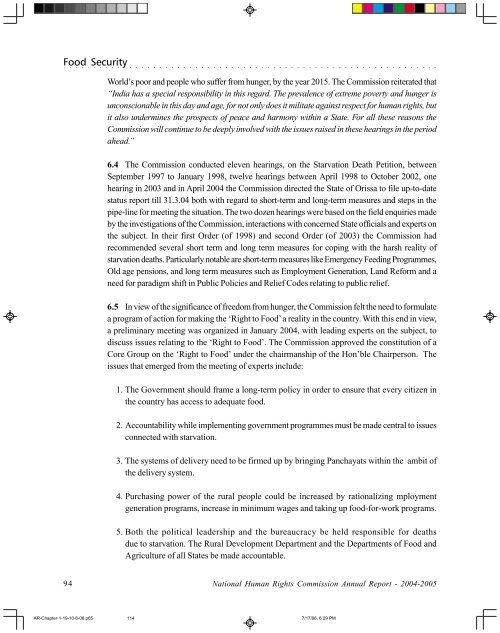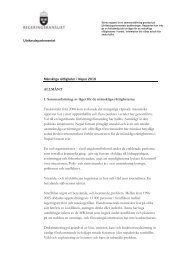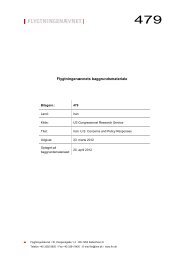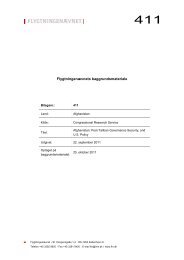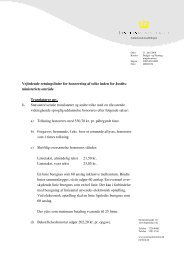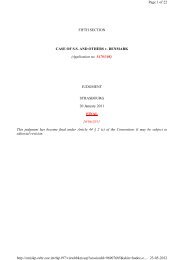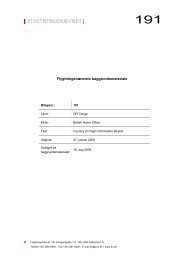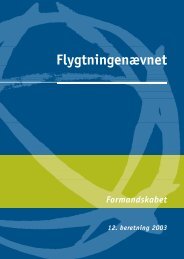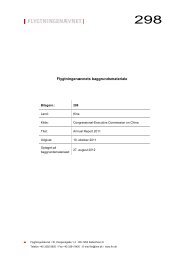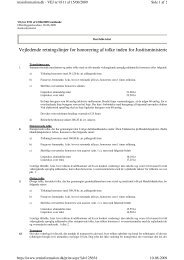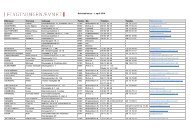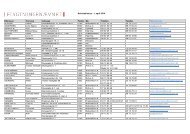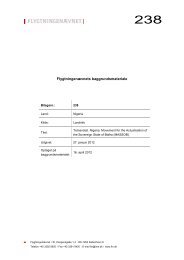Annual Report - National Human Rights Commission
Annual Report - National Human Rights Commission
Annual Report - National Human Rights Commission
You also want an ePaper? Increase the reach of your titles
YUMPU automatically turns print PDFs into web optimized ePapers that Google loves.
Food Security<br />
○ ○ ○ ○ ○ ○ ○ ○ ○ ○ ○ ○ ○ ○ ○ ○ ○ ○ ○ ○ ○ ○ ○ ○ ○ ○ ○ ○ ○ ○ ○ ○ ○ ○ ○ ○ ○ ○ ○ ○ ○ ○ ○ ○ ○ ○ ○ ○ ○ ○ ○ ○ ○ ○ ○ ○ ○ ○ ○ ○ ○ ○<br />
○<br />
World’s poor and people who suffer from hunger, by the year 2015. The <strong>Commission</strong> reiterated that<br />
“India has a special responsibility in this regard. The prevalence of extreme poverty and hunger is<br />
unconscionable in this day and age, for not only does it militate against respect for human rights, but<br />
it also undermines the prospects of peace and harmony within a State. For all these reasons the<br />
<strong>Commission</strong> will continue to be deeply involved with the issues raised in these hearings in the period<br />
ahead.”<br />
6.4 The <strong>Commission</strong> conducted eleven hearings, on the Starvation Death Petition, between<br />
September 1997 to January 1998, twelve hearings between April 1998 to October 2002, one<br />
hearing in 2003 and in April 2004 the <strong>Commission</strong> directed the State of Orissa to file up-to-date<br />
status report till 31.3.04 both with regard to short-term and long-term measures and steps in the<br />
pipe-line for meeting the situation. The two dozen hearings were based on the field enquiries made<br />
by the investigations of the <strong>Commission</strong>, interactions with concerned State officials and experts on<br />
the subject. In their first Order (of 1998) and second Order (of 2003) the <strong>Commission</strong> had<br />
recommended several short term and long term measures for coping with the harsh reality of<br />
starvation deaths. Particularly notable are short-term measures like Emergency Feeding Programmes,<br />
Old age pensions, and long term measures such as Employment Generation, Land Reform and a<br />
need for paradigm shift in Public Policies and Relief Codes relating to public relief.<br />
6.5 In view of the significance of freedom from hunger, the <strong>Commission</strong> felt the need to formulate<br />
a program of action for making the ‘Right to Food’ a reality in the country. With this end in view,<br />
a preliminary meeting was organized in January 2004, with leading experts on the subject, to<br />
discuss issues relating to the ‘Right to Food’. The <strong>Commission</strong> approved the constitution of a<br />
Core Group on the ‘Right to Food’ under the chairmanship of the Hon’ble Chairperson. The<br />
issues that emerged from the meeting of experts include:<br />
1. The Government should frame a long-term policy in order to ensure that every citizen in<br />
the country has access to adequate food.<br />
2. Accountability while implementing government programmes must be made central to issues<br />
connected with starvation.<br />
3. The systems of delivery need to be firmed up by bringing Panchayats within the ambit of<br />
the delivery system.<br />
4. Purchasing power of the rural people could be increased by rationalizing mployment<br />
generation programs, increase in minimum wages and taking up food-for-work programs.<br />
5. Both the political leadership and the bureaucracy be held responsible for deaths<br />
due to starvation. The Rural Development Department and the Departments of Food and<br />
Agriculture of all States be made accountable.<br />
94<br />
<strong>National</strong> <strong>Human</strong> <strong>Rights</strong> <strong>Commission</strong> <strong>Annual</strong> <strong>Report</strong> - 2004-2005<br />
AR-Chapter-1-19-10-6-06.p65<br />
114<br />
7/17/06, 6:29 PM


